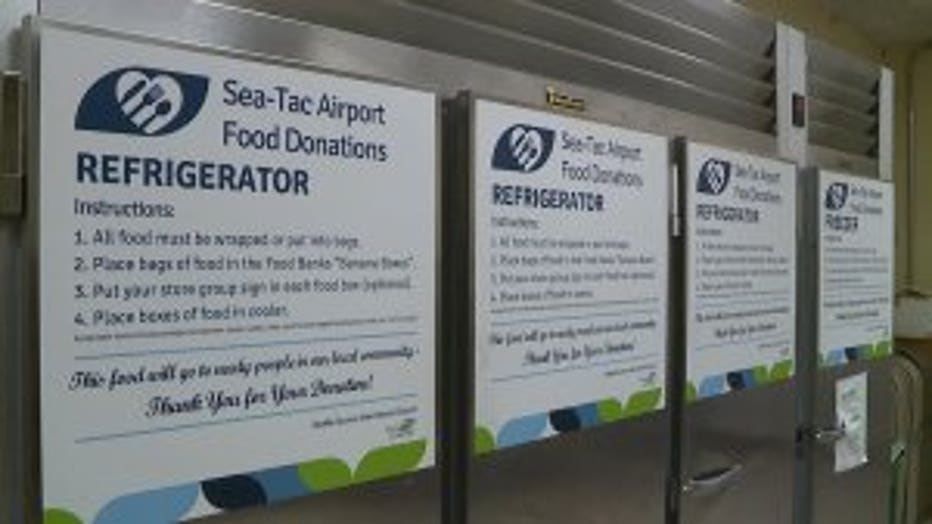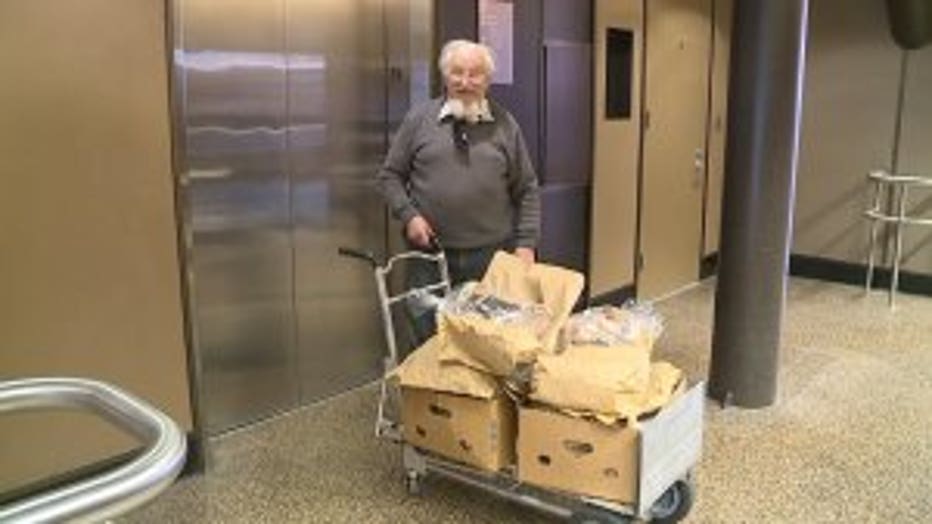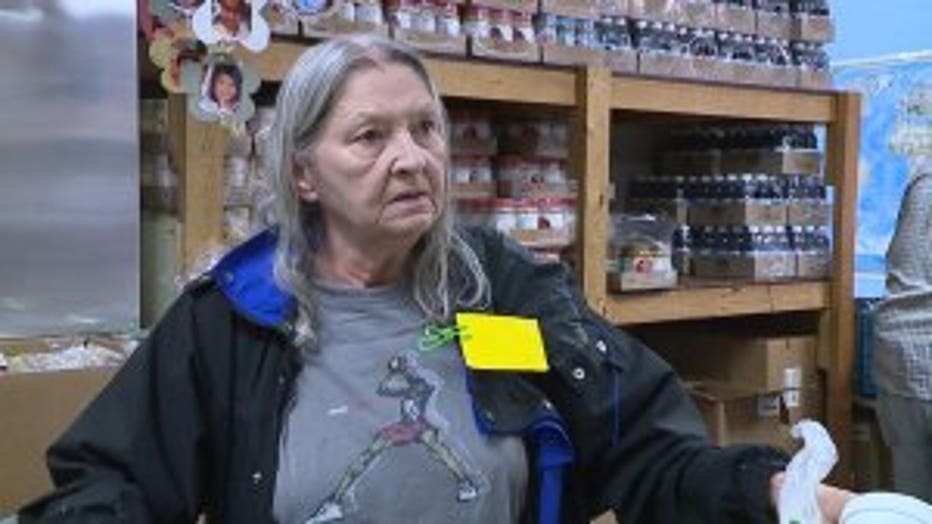Sea-Tac Airport food donation program soars to new heights helping hungry families
SEATTLE-TACOMA INTERNATIONAL AIRPORT -- The line is long at Beecher's in Terminal C. it's a popular spot for a taste of the Emerald City.
But, what doesn't sell when the day is done at the busy airport ends up in a line of refrigerators and freezers on the airport's main terminal on the second floor, high above the ticketing and baggage check.
"Unsold food is still good and can go into the community," says Jeremy Webb, who manages environmental programs at the airport.
Webb says dozens of Sea-Tac's restaurants contribute to their food donation program, to the tune of 56,000 pounds a year. It's an all-time high for the 10-year program.
"It's

kind of a grass-roots program that started with things we were seeing in the garbage, that turned into a pretty consistent stream of food going into the community."
"This is load number two," says the food bank volunteer Otto in a delightful German accent.
The senior Otto has no problem lifting pretty heavy boxes brimming with all sorts of food, sandwiches, fruit cups, pastries, pizza and bread. He's been doing this route for four years. On this day, going back twice from the Des Moines Area Food Bank van parked at the far end of baggage claim to the refrigerators on the second floor.
"Today I get a double dose of exercise," as he loads the boxes and bags into the van. The leftovers from Beechers are all aboard. It's a short drive to the

Food bank volunteer Otto waits for the Sea-Tac elevator with his second load of food donations of the day.
food bank-- but these daily runs go a long way to help hungry families in South King County, to the tune of 45,000 meals every year. They get busiest in the winter when the economic stresses of heating and electric bills can put strain on the budgets of many families. Need also peaks again when kids get out for the summer and school breakfast and lunch programs stop for the season too.
Since the inception of the food donation program a decade ago, Sea-Tac has grown to become the 9th busiest airport in the country. The food donation program growing right alongside it-- and serving a part of King County where, unfortunately, the number of people in need has been soaring to new heights as well.
Otto rolls the donations airport donations down a long hallway and past the line of folks sitting in queue to roll their cart through the food bank. It's barely 9 a.m. and already about eight people are waiting in line. But, this is just the beginning. A typical day will see about 70 families go through the line here.
Otto turns, navigating his cart full of boxes into an aisle that goes all the way to the ceiling of non-perishable cans and cases of things like toiletries and peanut butter. "Good morning," he says cheerfully to the workers sorting and stacking donations in the storage room. "Hi, Otto!" several workers chime back.
"There's been a huge increase in demand," says Kris Van Gasken, executive director of the Des Moines Area Food Bank. "A lot of low-income folks have moved into this area."
Van Gasken says as rising rents in Seattle have pushed many low-income people to South King County. The clients here are often seniors, people with disabilities, and people who have jobs but are just barely getting by.
"We have people who that have had stable jobs before, they were an engineer or a computer programmer. They lost their job during the recession and maybe the best they've been able to come up with is delivering pizzas."
She says many families these days live paycheck to paycheck.
"I don't think

Angie Rogers is thankful for the Sea-Tac program that's turned former trash into food for hungry families.
anybody has been safe from losing a job at some point," she says, "If you have two folks working full-time, it just takes one person getting their hours cut back to not be able to afford their house payment or car payment."
She says many of their clients used to be donors to the food bank.
Van Gasken says since the donated airport food is already packaged for people on the go-- it can be a perfect fit for their clients who are always on the move-- often going between several part time jobs.
"See, I would never buy these things," says Angie Rogers, "so they're a real treat for me.
Rogers is in her 70s and a breast cancer survivor, so she avoids red meat.
"Pass on the meat and yes on the mac and cheese," she says laughing.
Since she's on a fixed income, the Beecher's is a real treat. And she's thankful to Sea-Tac for turning what was once trash into something that everyone in need will positively treasure.
"To me, that's the most wonderful thing."

